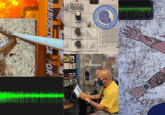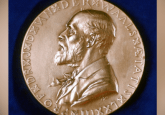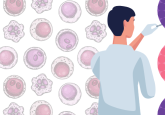In conversation with the Black Medical and Scientific Network
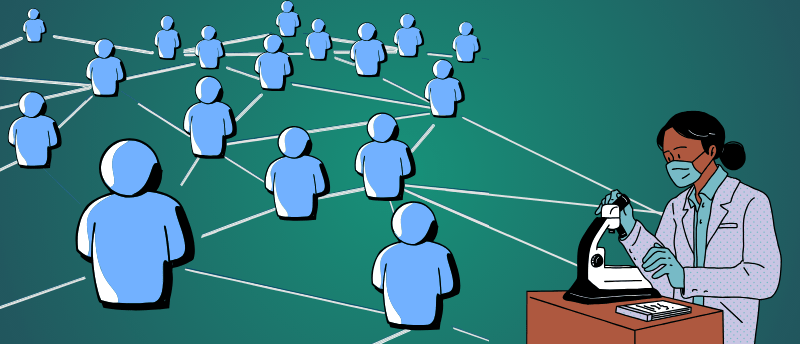
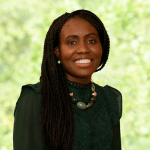 At ELRIG UK’s Drug Discovery Conference 2023, we spoke with the Founder of the Black Medical and Scientific Network Laura Eghobamien to find out more about why it was founded and what the network offers. Laura has a background in immunology and has worked in a number of different small biotech teams, developing cell-based assays for potential antibody-based drugs. In 2020, Laura founded the Black Medical and Scientific Network to provide support for marginalized students and professionals working in STEM.
At ELRIG UK’s Drug Discovery Conference 2023, we spoke with the Founder of the Black Medical and Scientific Network Laura Eghobamien to find out more about why it was founded and what the network offers. Laura has a background in immunology and has worked in a number of different small biotech teams, developing cell-based assays for potential antibody-based drugs. In 2020, Laura founded the Black Medical and Scientific Network to provide support for marginalized students and professionals working in STEM.
Could you tell me about the Black Medical and Scientific Network?
It’s a nonprofit organization that I started about 3 years ago, during the COVID-19 pandemic. Especially in the Black community, there was a real lack of understanding around the COVID vaccine, which was due to a number of things. Historically, within the community, there have been fears of being used as guinea pigs for medical trials, so there were lots of discussions around the vaccine as people weren’t quite sure whether this was another one of those research trials targeting Black and ethnic minorities. Starting the Black Medical and Scientific Network was more about educating that community because, at the time, vaccine uptake was quite low. I stepped up with the organization because we needed to educate our community and help them make informed decisions about the vaccine.
Since then, our mission is to be visible and to inspire the next generation of Black scientists. In the 100 years of the Nobel laureates, there has never been a Black scientist who’s won the award. That’s insane and it’s also not good for science because, as we know, the scientific community is diverse. When I saw this, it really broke my heart. We’ve been working in this field for a long time, everyone knows being a laureate is an outstanding award for your achievements in science, and the fact there hasn’t been a Black scientist who’s won that award is really shocking.
We want to push boundaries; we want to inspire the next generation. You don’t have to be an academically A* student to be a scientist. If you look around you and you can see there’s a problem to solve and you can start to see how to solve it, you’re already thinking like a scientist. You could be the next Nobel laureate.
With the Black Medical and Scientific Network, we are going to schools as well, taking our time to say, this is what a scientist looks like today. In the classroom, kids don’t see that. I went to a school recently where I saw a display that was very white and male-dominated. I asked, how does that represent diversity? If I was a Black student in that school, would I want to aspire to be a scientist? Not really. So, we’re trying to increase representation across academia and industry.
We also work with early career scientists. If you’re an early career scientist in academia wanting to move into industry, we have a support network and you can ask someone about that transition. Or, if you want to be an entrepreneur in science, we have entrepreneurs within our network. Whatever stage you are in your career, we can support you.
How have you been involved with Drug Discovery 2023
I’ve been a Conference Director for this ELRIG meeting. I got involved after ELRIG approached me saying that they needed to ensure that those attending the conference was more reflective of the diversity within the life science community. This was an opportunity for us to be involved and invite Black speakers to this conference. If you’re part of our membership, we’ll give you opportunities so that you can be visible at conferences. If you want to speak at engagements, become a member. We’ve got opportunities and we’re working with lots of different companies.
How can people join the network?
Our website is still being built. At the moment people can email [email protected] and we’ll put them on our mailing list. Membership gives an opportunity and space to connect to other scientists who are in the network.
Do you have any career advice that you’d like to pass on?
I really lacked good mentors; I spent such a long time in my career feeling stuck, not knowing how to move up the career ladder because I didn’t see that representation. When I was working at Medimmune (now AstraZeneca, Cambridge, UK), it was such an inspiration for me when we had our first Black woman in a leadership position, which was the first time that I’d seen any representation like this at a senior level. That inspired me to want to rise up in my career.
Work hard and hold on to your career aspirations and look for a mentor, because a mentor will really guide you. I’ve had people email me in the past asking for advice. We’d look at their CV and discuss their career aspirations. What do you want to do? What do you enjoy doing? What are you passionate about? If you’re not excited about what you’re doing, you don’t have to be doing it. Think about what you’re passionate about because that’s what is going to really spur you on.
Keep on doing whatever you’re passionate about, work hard at it, and you will be successful.
Is there anything else you’d like to add?
For Black History Month, we celebrated Black female scientists and sisterhood. We worked with James Bell, a photographer and senior lecturer at Norwich University of Arts (UK), to take portraits of Black female scientists in Cambridge and in London, which were displayed in Cambridge.
From the 8th of January 2024, we will be having another exhibition at Angela Ruskin University (Cambridge, UK) for 2 weeks. The public can come along and learn about some of the fantastic work these women are doing. This will be part of an ongoing touring exhibition, displaying portraits of Black scientists of all genders at different organizations and institutes – if any scientists or institutes would like to get involved please email [email protected] for more information.
I think it’s really inspirational because we’ve captured scientists working in many different fields and in a range of careers. If you’re thinking about your next career move, this will give you a feel about what’s out there and what you are able to do as a scientist.
